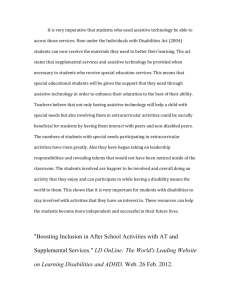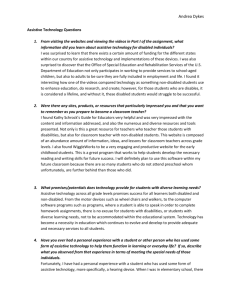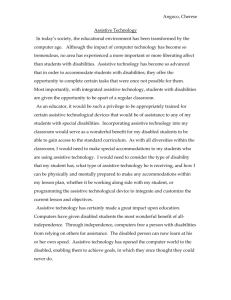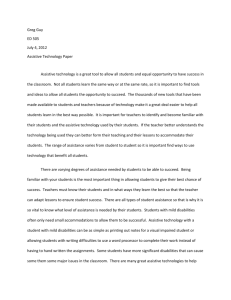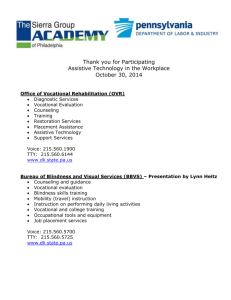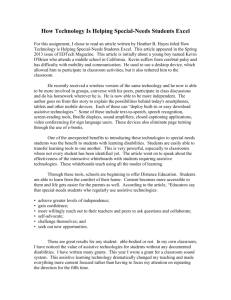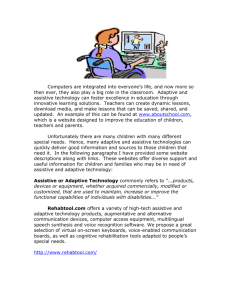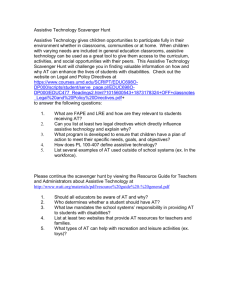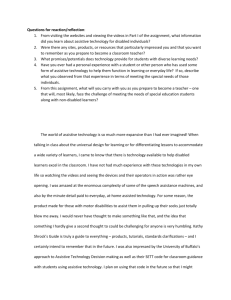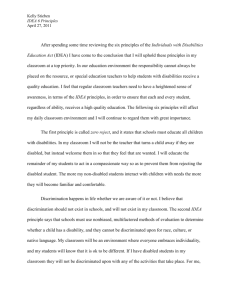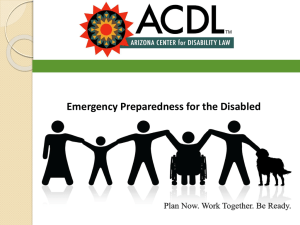Technology_An_Equalizer
advertisement
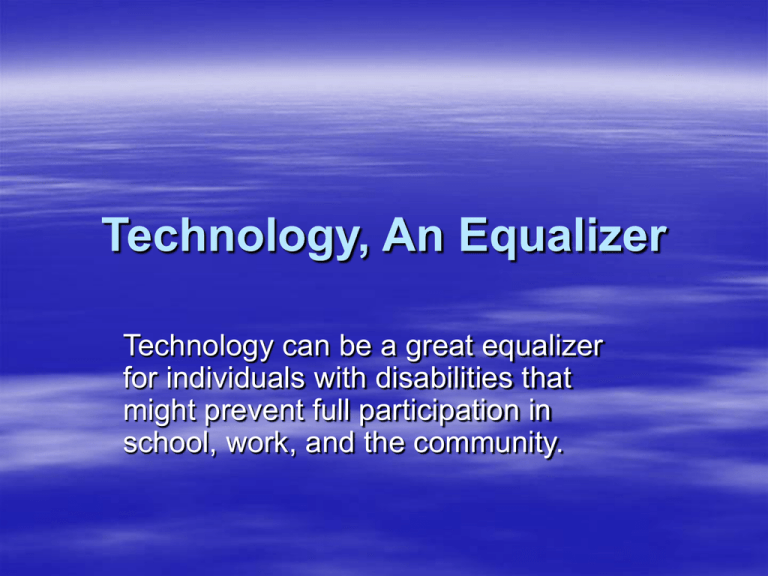
Technology, An Equalizer Technology can be a great equalizer for individuals with disabilities that might prevent full participation in school, work, and the community. Assistive Technology Any item, piece of equipment, or product system whether acquired commercially off the shelf, modified, or customized, that is used to increase, maintain, or improve functional capabilities of individuals with disabilities. Assistive Technology A lot of technology we see daily was developed initially to assist persons with disabilities. Example: The optical character reader, developed to assist individuals unable to read written text. has been adapted in the workplace to scan printed documents into computer-based editable material. To save on data entry labor. Assistive Technology In Use No One is a Disabled Person While on the Internet with Linux. Words from a quadriplegic using voice recognition technology. Most famous example Stephen Hawking- Physicist with motor neuron disease. “For a time, the only way I could communicate was to spell out words letter by letter, by raising my eyebrows when someone pointed to the right letter on a spelling card.” Difficult to carry on a conversation or write a scientific paper. Stephen Hawking “A computer expert in California, called Walt Woltosz, heard of my plight. He sent me a computer program he had written, called Equalizer.” – Allowed Hawking to select words from a series of menus on the screen, by pressing a switch by hand. – The words would be sent to a speech synthesizer for communication. Walt Woltosz Words+ Living Center – A sensor is placed on or near the muscle group over which disabled person has the most control. – Can operate the software with an eye switch. – Most severely handicap can communicate 5-10 words per minute. The disabled as a potential IT workforce Maybe?

